I didn’t know the importance of setting boundaries until life hit me in the most unusual way. It was in that moment I realized I was an “Open book” and “Easy target” for emotional warfare that often times stems from my lack of having personal boundaries . From finding it hard to say “No”, to being scared of hurting others even when their actions hurt me. I had to take my personal growth as a project, and it all started from putting myself in check.
If the first paragraph sounds like you then this article is just for you…. Let’s dive in!
How would your life change if you were able to maintain personal boundaries? This includes stopping people from overstepping into your personal space, as well as sticking to the personal boundaries that you set for yourself later.
What Are Personal Boundaries?
Personal boundaries are the limits that you set when it comes to what you expect from a person and how they behave towards you. They indicate what you find acceptable and unacceptable in someone else’s behavior, particularly with someone that you are close to, such as family, friends, or a partner.
Personal boundaries can be restrictive or free depending on your own personality and preferences. Other common domains of personal boundaries include personal space,, time, energy, interaction, communication, religion, and ethics. However, personal boundaries are by no means limited to these things.
Why Are Personal Boundaries Important?
The fundamental reason why people set boundaries is to try and create stronger relationships with themselves and other people. Personal boundaries are an essential part of any thriving relationship and should never be overlooked.
Just like fences and walls in the physical world are used to determine where you can and can’t go, what is yours and what isn’t yours, personal boundaries determine how far others can go before crossing the line.
They stop people from walking all over you. They stop people from manipulating you. They stop people from getting too far into your personal business.
How to Set Personal Boundaries
Just like anything else in life, in order to become an expert at setting and being comfortable with personal boundaries, you have to practice. Luckily, we have 7 amazing ways for you to get started and to start reclaiming your own life.
Are you ready?
1. Identify Your Boundaries
It is impossible to begin setting personal boundaries when you don’t even know what they are or where they lie. This is why the starting point for anyone who feels like they may need more/fewer boundaries is to identify where they currently stand.
Are you getting pushed around too often? Or are you completely resistant to any change?
Do you find yourself arguing with people a lot? Or do you find it difficult to speak up when you know you should?
Everybody has different starting points when it comes to their personal boundaries, and those boundaries will inevitably change with time. The first thing you should do, though, is to find your starting point.
2. Determine Your Values
One of the best ways to identify what your boundaries are and how you want them to change is to determine what your values in life are. If you value creative freedom and thinking time, consider placing a strong boundary around your personal space and your free time.
If you value the small things in life over the big, extravagant things, maybe consider loosening your boundaries a little to let more serendipity in.
If you value yourself or you want to start valuing yourself more highly, start placing firmer boundaries around how people speak to you and treat you.
Whatever your unique personal values are, your personal boundaries that you set are going to be what helps you to maintain them.
3. Start Simple
Rather than completely pushing back on people that are overstepping, turning your back on every single aspect of your old beliefs, or selling all of your stuff to live in a remote forest, there are small steps that you can and should take first.
If you have a friend that always calls you to make plans, and you feel pressured into doing so, politely tell them that you don’t want to this week. What will happen? Not much, probably. This small step will give you the confidence to say no again in future weeks when you don’t feel like going out.
If you feel like you are getting too much input and overwhelming information from your phone, my favorite hack is to delete the troublesome apps for a day. Missing them? Download them again tomorrow. Didn’t miss them as much as you thought? See what another day without them is like.
It is just as important to set boundaries with yourself and your own routines as it is to set boundaries with other people. The only way to begin in both respects is to start simple.
4. Listen to Your Feelings
If you aren’t sure about where your personal boundaries should be, it might be a good idea to check in with your feelings and the sensations in your body every now and then These will usually give you an excellent indication.
Signs to look out for include an increased heart rate, sweating, tightness in your chest or stomach, and other general feelings of discomfort. Of course, just because you feel these sensations does not mean that you should close yourself up to the world — that won’t help you in any way.
Your feelings are like directions on the side of the road. They will let you know what areas that you should probably investigate a little further.
5. Learn to Say No
Possibly the biggest stumbling block that people who struggle with setting personal boundaries have is that they find it extremely difficult to say no.
This comes in all sorts of packages. You might find it impossible to say no to social gatherings for Fear of Missing Out . You might find yourself doing loads of favors for people who asked you even though they could have probably done those things themselves.
You might even have a friend or spouse who encroaches too far into your personal stuff, but you struggle to tell them no because they are your friend or partner. The problem is with you and not them, right?
Probably not. The reason most people face resistance to saying no is that they are worried about how it will make the other person feel. Maybe it’s time to stop and think about how you are feeling for once.
You are allowed to say no without an explanation . It likely won’t affect the other person nearly as much as you think it will.
6. Practice Self-Awareness
When you are aware of your thoughts and feelings and what they are doing for you (or to you), you can start to work out where specific boundaries need to be set.
For example, if you are an overthinker, and your thoughts begin to race whenever you are in a situation, be aware of this. Set a boundary with yourself that whenever a negative thought pops into your mind, you will let it go. No matter what. It won’t have anything useful to say, so don’t fall for it.
Of course, this can apply to other people, too. However, self-awareness and boundaries with yourself not only go hand-in-hand, but are essential to a life of peace and joy.
7. Seek Support
A common mistake to make when trying to set personal boundaries is that you have to do it alone. You have to plan everything yourself, enforce everything yourself, and work out what is and what isn’t working for yourself. That simply isn’t true.
If you find yourself struggling or simply want an easier ride, talk to your friends, family, or spouse about the boundaries that you will set and explain why. You might think that opening up will create arguments and resistance, but more often than not, people appreciate you letting them know.
Setting boundaries can be extremely difficult though, whether that be setting them with other people or setting them with yourself. Don’t ever have any shame about seeking professional help. If you feel like your life will greatly benefit from help, then it is something that you absolutely should consider getting.
About Esther
“Esther is an activist, Writer, Columnist, Author and editor-in-chief & founder -Women of Rubies. She is passionate about issues that affect women and children.
Facebook: Esther Ijewere
Twitter & IG : @Estherijewere
LinkedIn: Esther Ijewere
Email: admin@womenofrubies.com


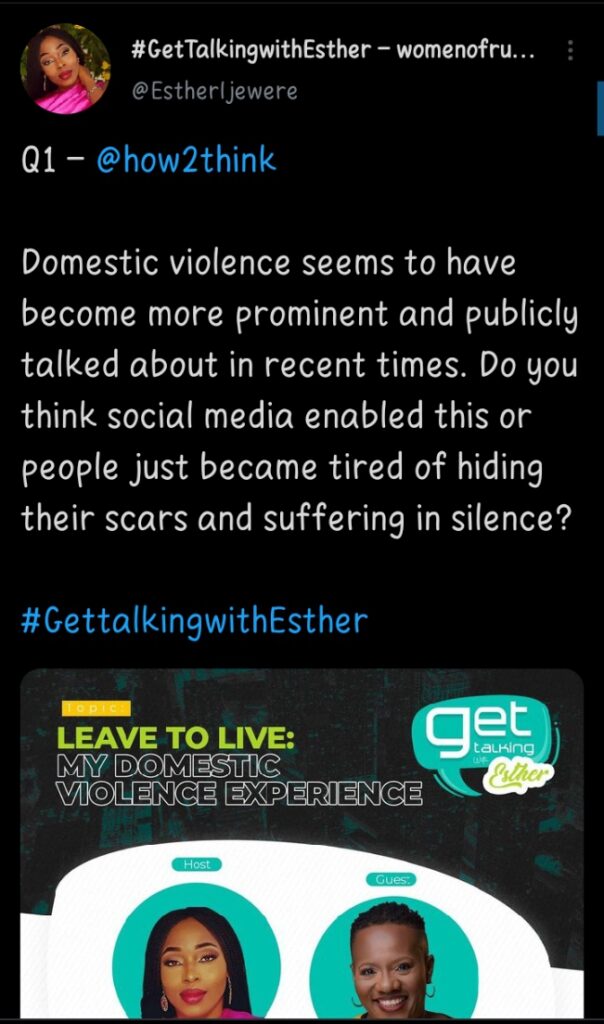
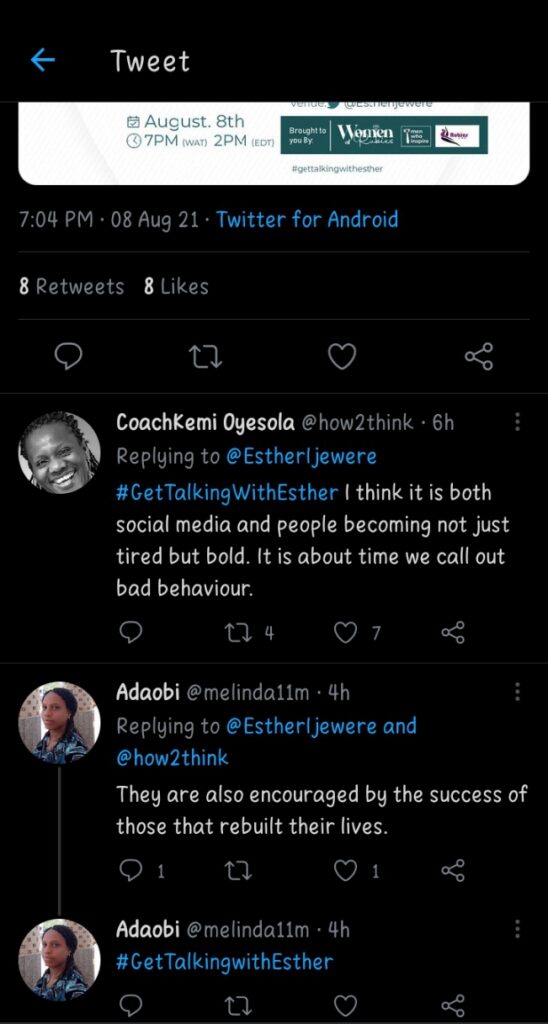
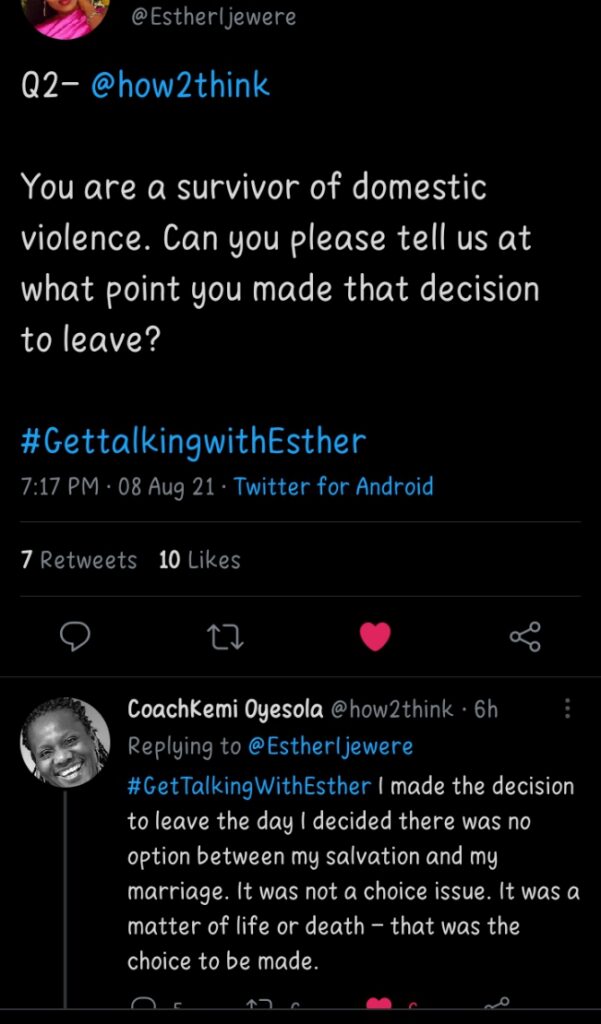
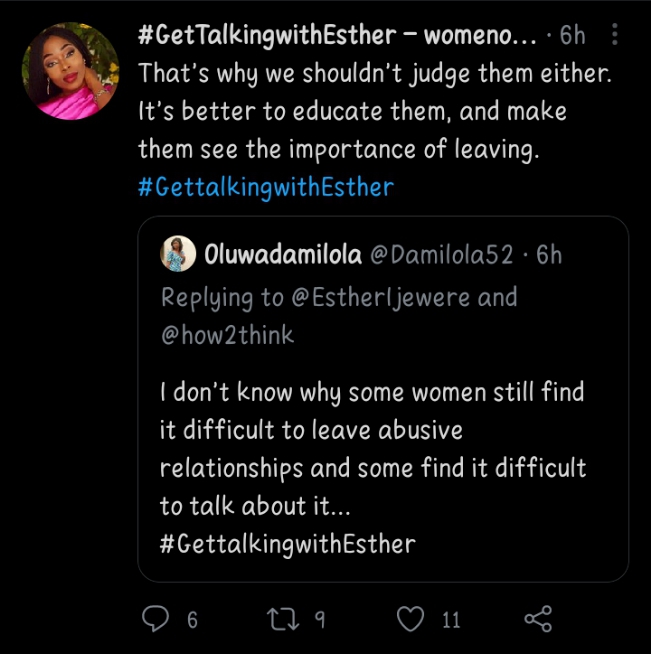
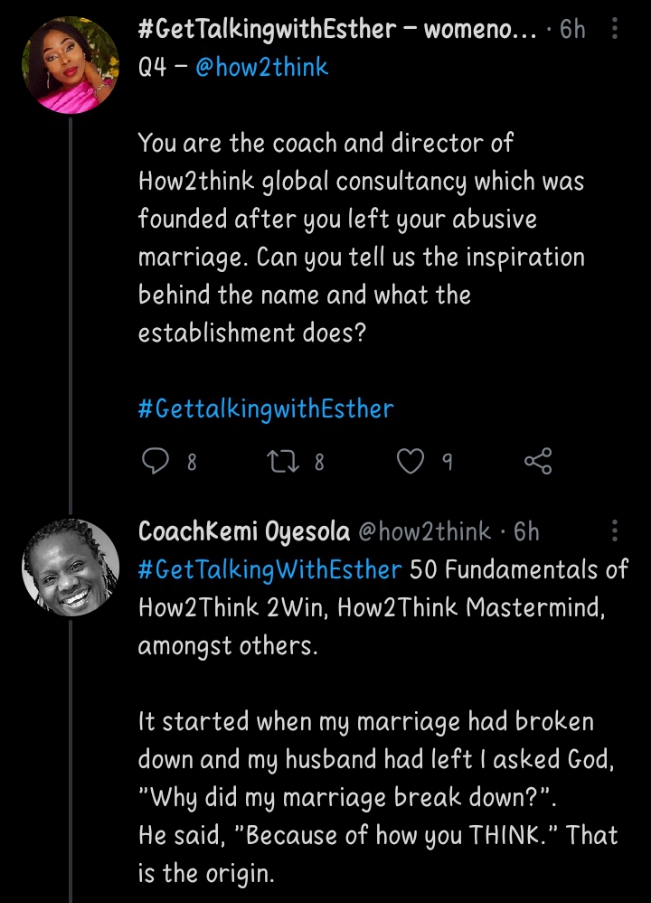
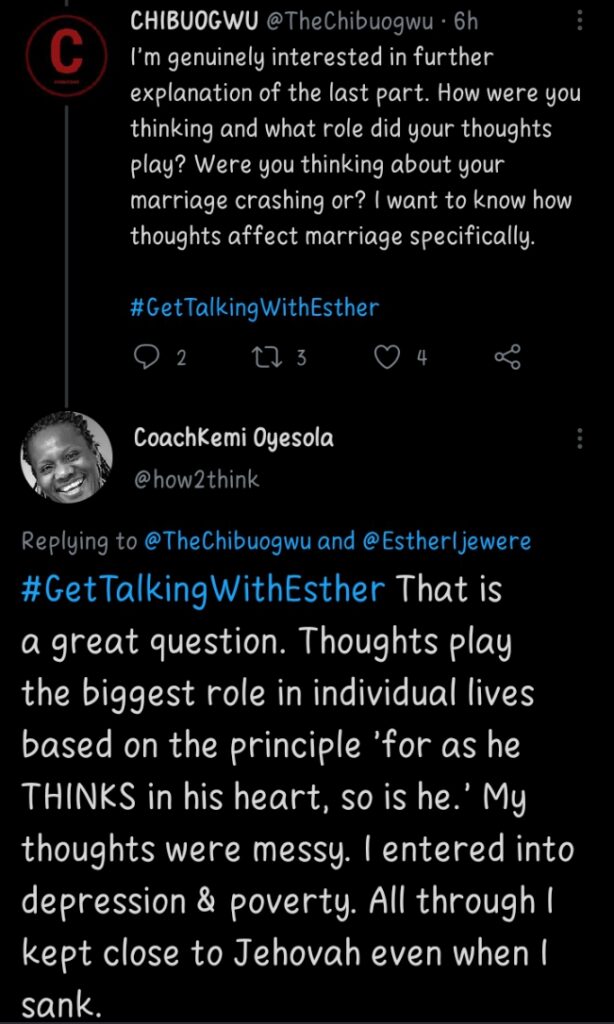
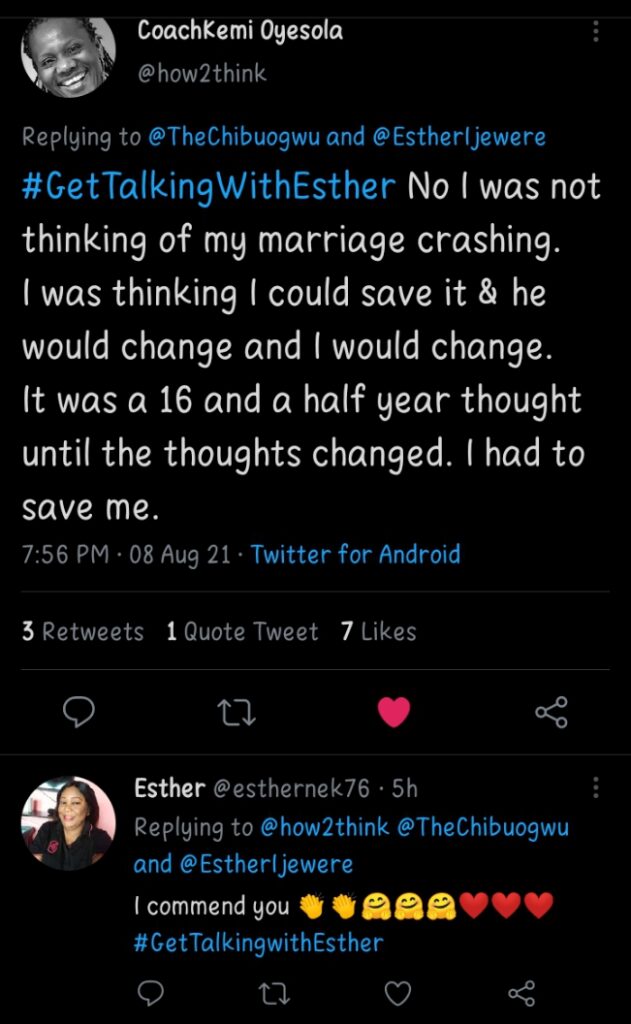
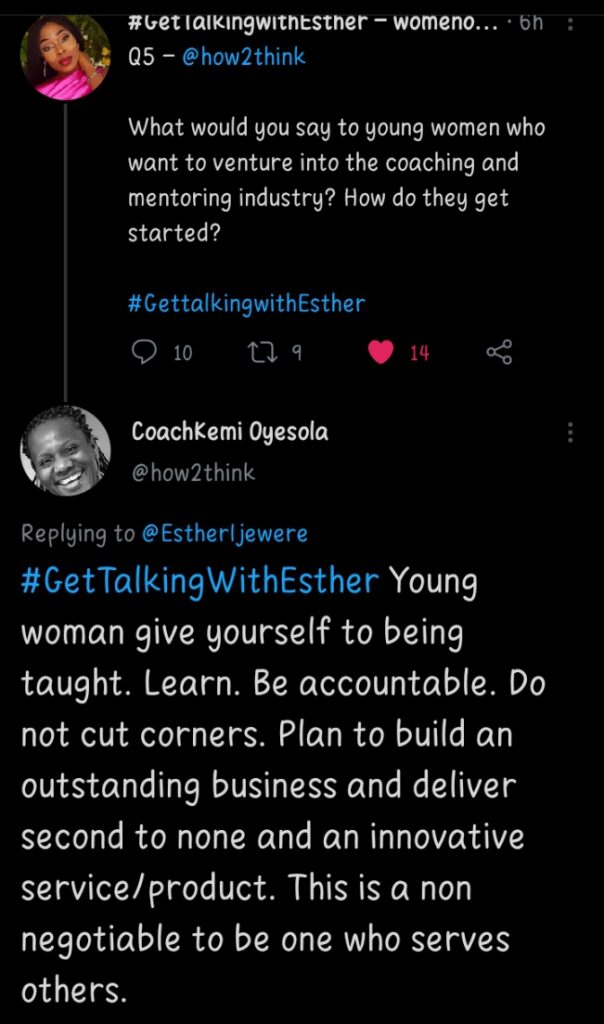

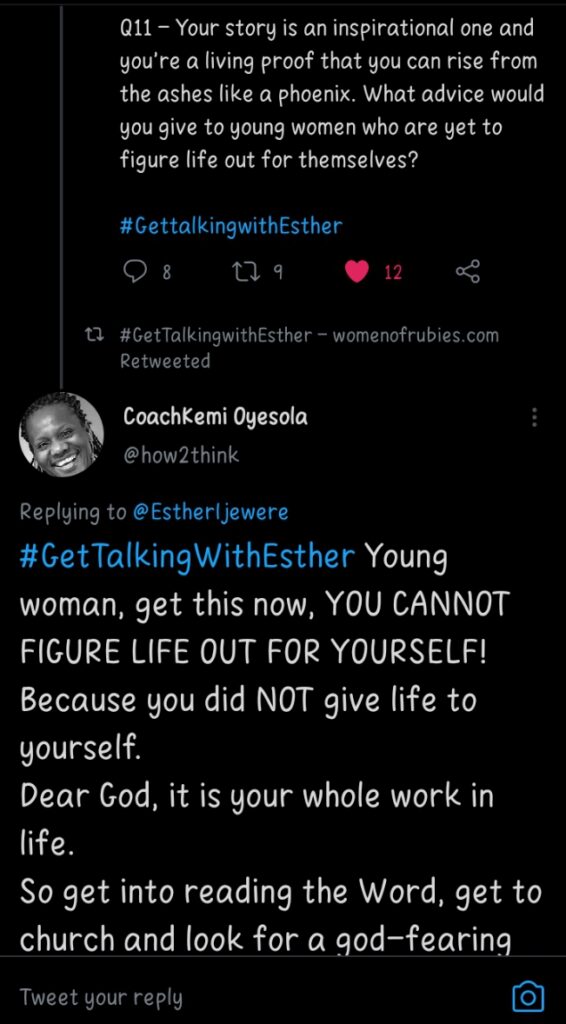
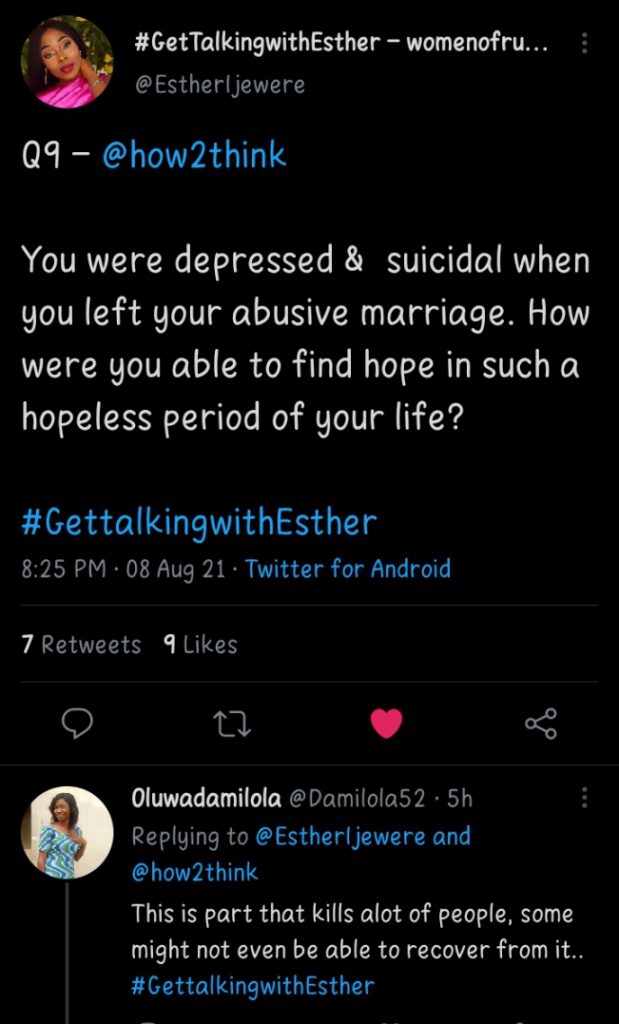
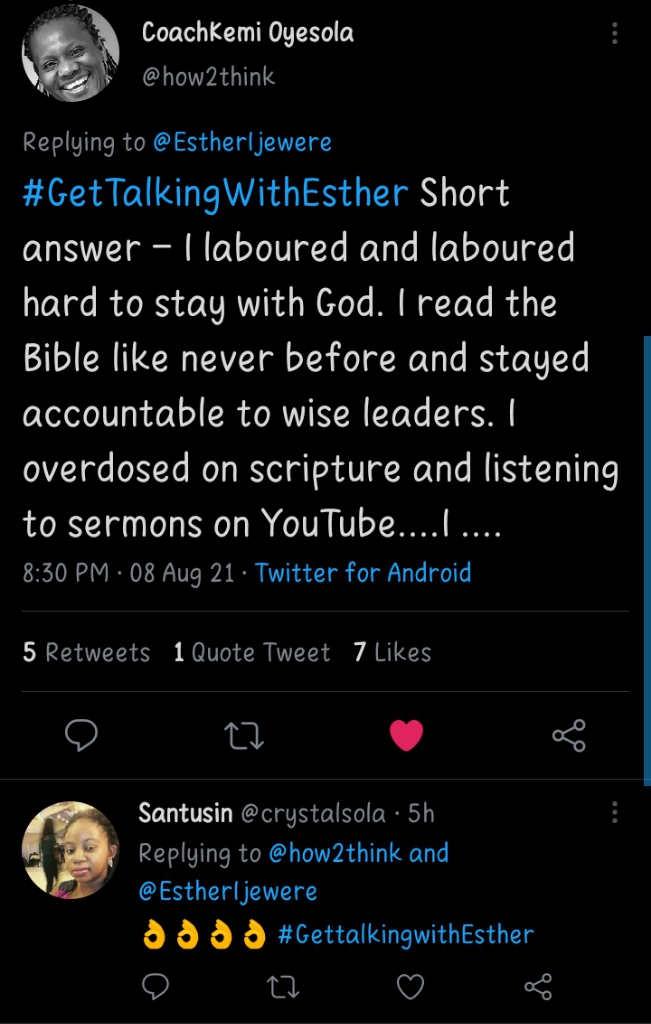
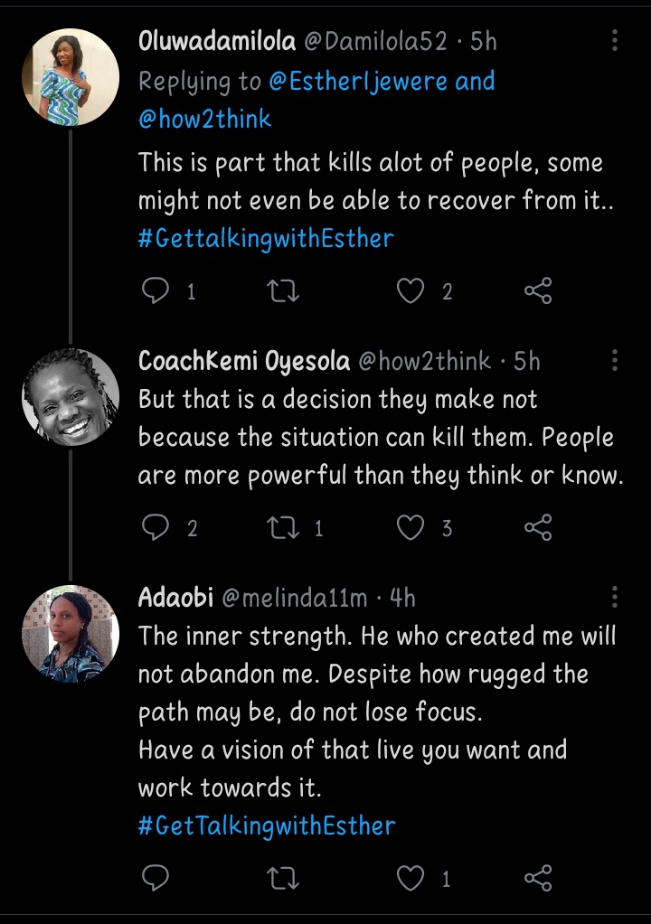
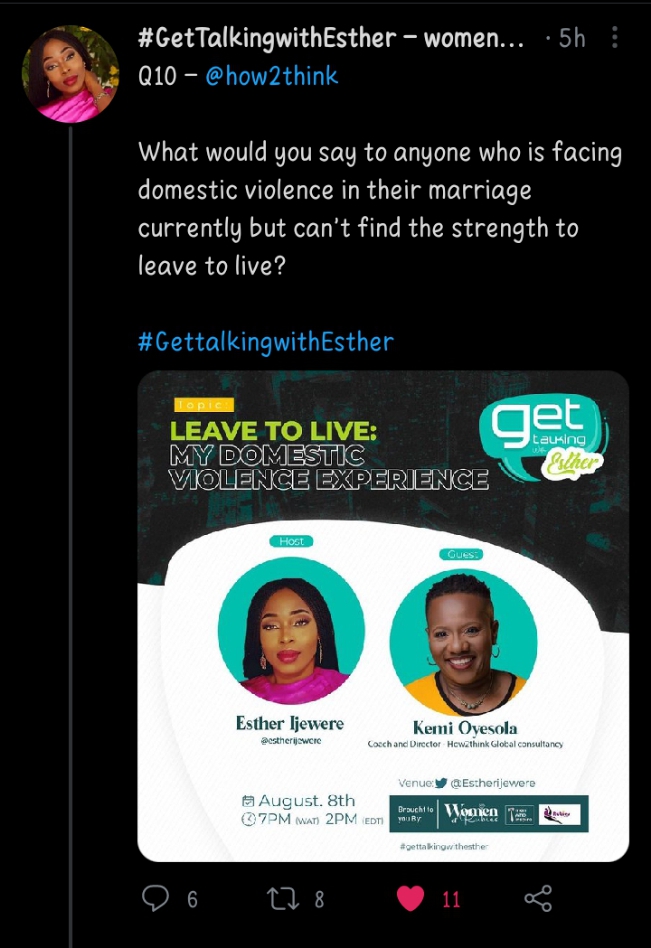
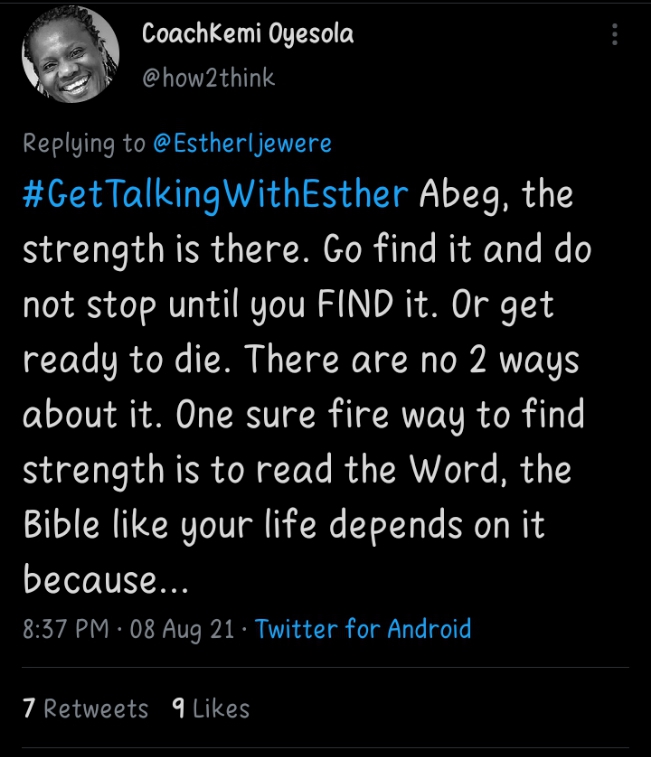
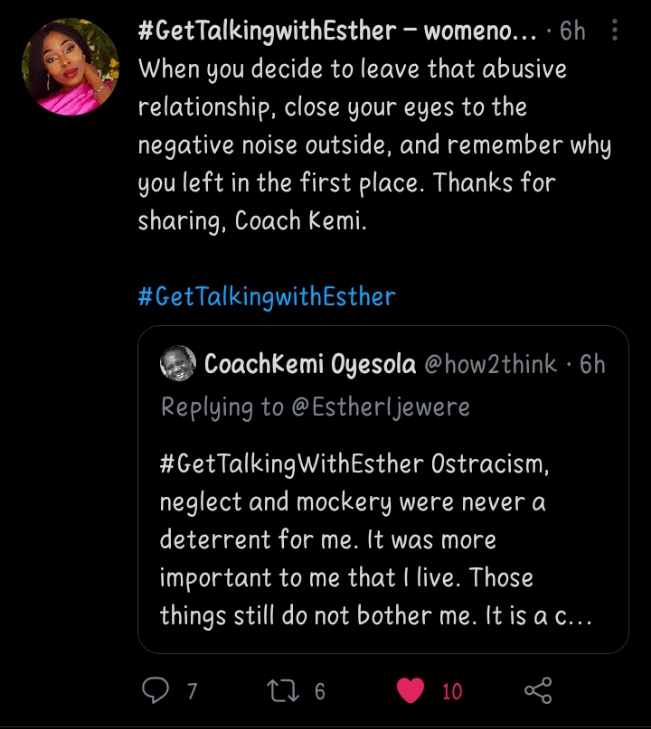
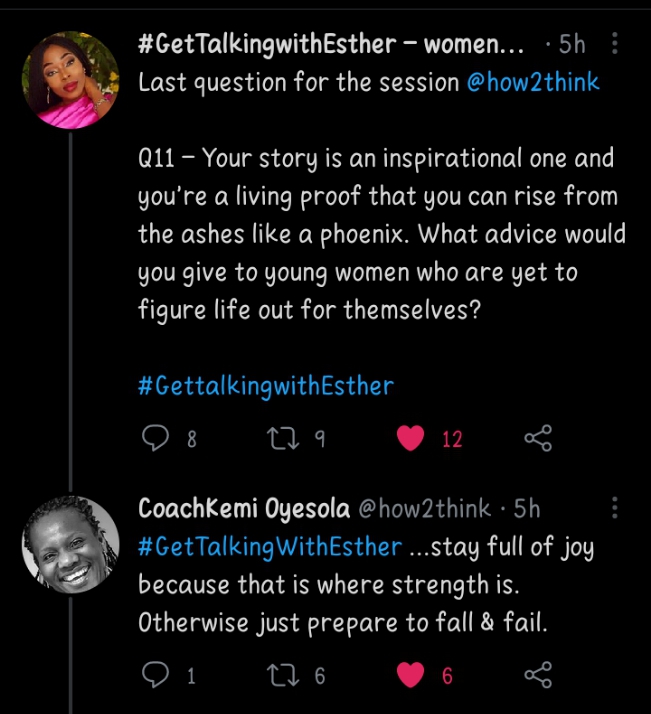 This tweet chat was a moment of learning and unlearning and one thing that was constant in our guest’s response is the God-factor and how much role your thoughts play in shaping your life.
This tweet chat was a moment of learning and unlearning and one thing that was constant in our guest’s response is the God-factor and how much role your thoughts play in shaping your life.
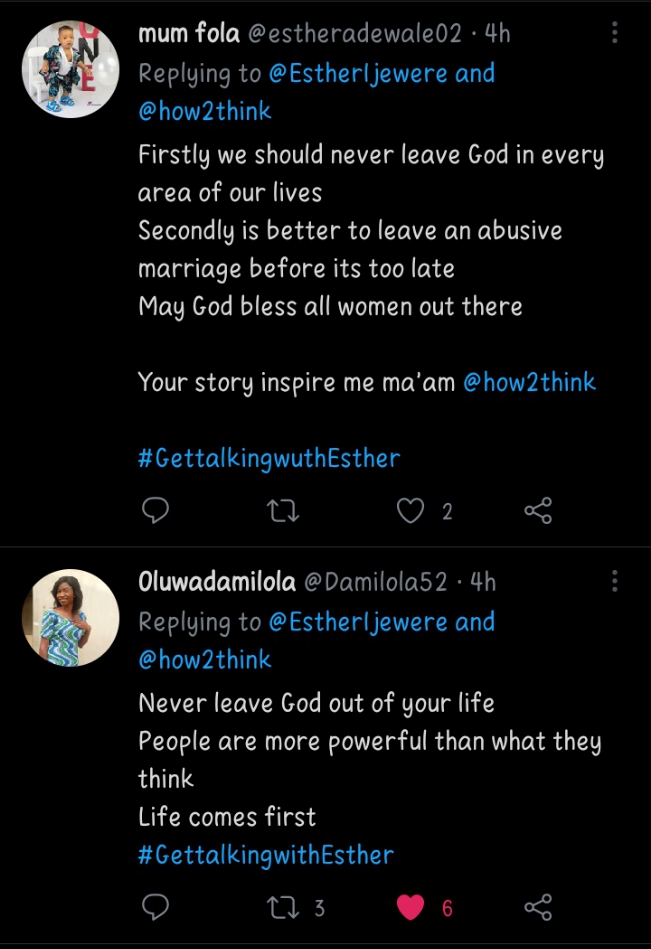
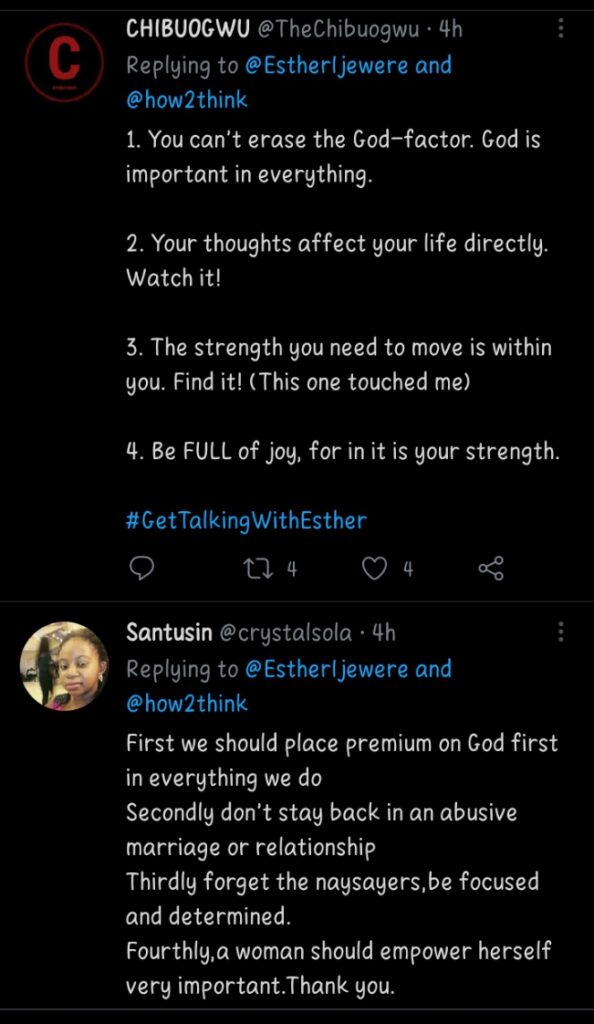 Coach Kemi Oyesola is a living proof that you can rise from any hopeless situation. As long as you can find the strength, courage and determination to do so.
Coach Kemi Oyesola is a living proof that you can rise from any hopeless situation. As long as you can find the strength, courage and determination to do so.









